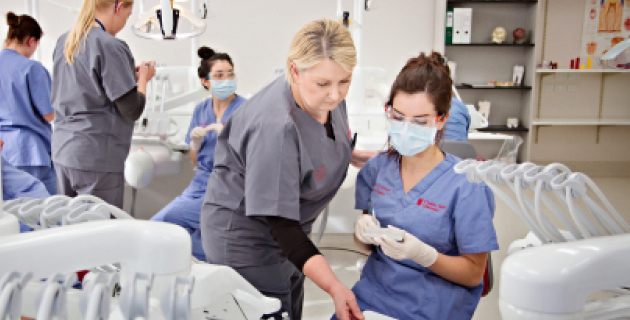A dental care clinic is a teaching facility that provides dental services to undergraduate students during their clinical training. The clinics are staffed by dental assistants, dental hygienists, and dentists.
CDA Cares clinics have successfully shown local communities the importance of oral health and revealed the unmet Robina Dental care needs, which contributed to state and local decision-makers’ awareness of inequitable access.
General Dentistry
General dentistry involves the prevention, diagnosis and treatment of oral health problems. This includes professional teeth cleanings, cavity fillings, and tooth extractions.
Unlike specialists who focus on one area of dental care, general dentists offer a wide range of services to patients of all ages.
During a routine visit, your general dentist will examine your mouth, perform a dental exam and provide you with a professional teeth cleaning. He or she will also take diagnostic images such as X-rays to evaluate your oral health.
Oral Pathology
When you have oral conditions or diseases, it’s important to get help from a dental care clinic that offers specialty services. For instance, if you have a wisdom tooth that’s impacted and needs to be extracted, your general dentist might not have the training needed for this kind of surgery.
The oral pathology division of a dental care clinic helps diagnose and treat abnormalities in the mouth. It involves studying soft and hard tissue, including the lining of the mouth, bones, salivary glands and other structures around it.
Urgent Care
When you’re experiencing tooth pain, swelling, or a cracked tooth, an urgent care dental clinic may be the answer. Unlike emergency rooms, this type of facility can handle complex cases and offer more extensive treatment options.
A dental care clinic offers a number of services including examinations, x-rays and treatment referrals to other areas of the hospital such as oral surgery, endodontics or prosthodontics. A small fee is charged for each service.
Orthodontics
Orthodontic treatment helps improve the appearance and function of your smile. Straight teeth are easier to keep clean and less likely to wear down prematurely.
Orthodontic treatment can also help to reduce pain related to temporomandibular joint (TMJ) disorder. In addition, it can reduce the risk of cavities and gum disease.
Endodontics
Endodontics is a dental care specialty that focuses on treating problems affecting the interior of your teeth. This includes your tooth’s “pulp,” which is the soft material inside your teeth that contains nerves, blood vessels and other tissues.
When this tissue becomes damaged, diseased or infected, a dentist may recommend a root canal to relieve pain and save your natural tooth. However, not all root canals work.
Periodontics
Periodontics is the dental specialty focusing on the study, prevention and treatment of diseases that affect the supporting tissues in the mouth (periodontium). It includes gum disease, bone grafts, and placement of dental implants.
Gum disease is usually controlled through good oral hygiene and regular dentist visits. However, more severe forms of this problem are best managed by a periodontist.
Gum disease, or periodontitis, is a progressive infection that destroys the tissue and bone around teeth. In the most advanced stages, it can damage the jawbone, which in turn can lead to tooth loss.
Restorative Dentistry
Restorative dentistry is a field of dentistry that focuses on repairing damaged or missing teeth. It also focuses on improving overall dental health and chewing function.
The most common type of restorative dentistry is filling cavities or holes in teeth. These fillings protect teeth from further decay, and may be made of gold, silver or composite materials.
Other restorative procedures include crowns, which cover a tooth to strengthen it and improve its appearance. Bridges and implants are other common options to replace missing teeth, as they restore chewing power and smiles.
Dental Implants
Dental implants are replacements for missing teeth that look and feel like real teeth. They are anchored into the jawbone and are an alternative to removable bridges or dentures.
Implants are a great long-term option for replacing missing teeth, and both physicians and dentists recommend them when possible. The procedure involves placing a titanium post into the bone to support an artificial tooth (crown or bridge).
Cosmetic Dentistry
Whether you are looking for a new smile or just want to enhance your current one, cosmetic dentistry at a dental care clinic can help you create the perfect smile.
Dentists can also use veneers and crowns to fix crooked, broken or chipped teeth. They can also whiten teeth to improve their appearance.
These treatments can make a big difference in your confidence and self-esteem. A good cosmetic dentist can work with you to create a treatment plan that meets your needs and goals.

